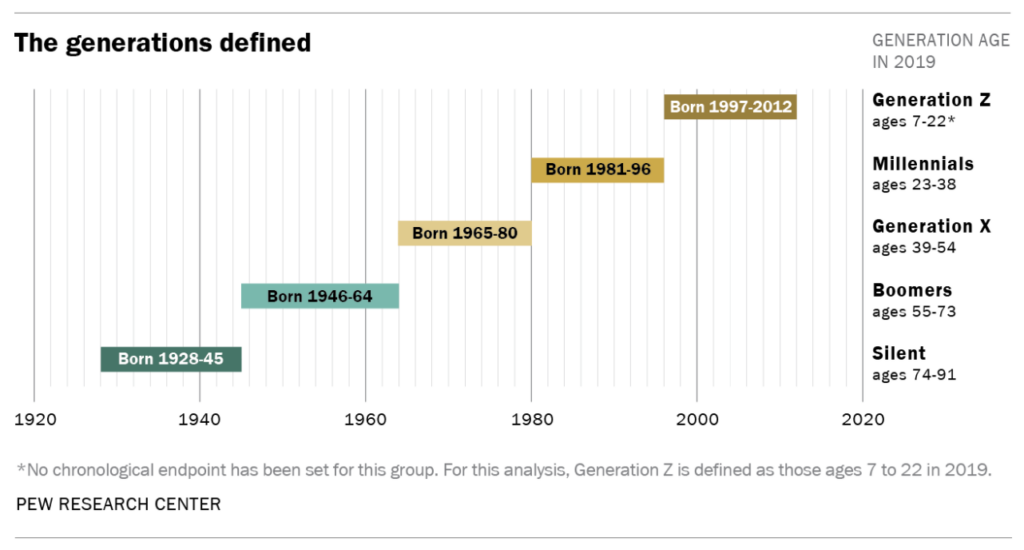Move over, Millennials. The oldest in that cohort is now 40 years old (!) so understanding Generation Z is the latest objective. First of all, definitions must be agreed.
Michael Dimock, Ph.D., president of Pew Research Center, the nonpartisan think tank, writes: “For decades, Pew Research Center has been committed to measuring public attitudes on key issues and documenting differences in those attitudes across demographic groups. One lens often employed by researchers at the Center to understand these differences is that of generation.”
The Pew Research Center has determined using 1996 as the last birth year for Millennials, so anyone born between 1981 and 1996 (ages 25 to 40 in 2021) gets the Millennial tag, and anyone born from 1997 onward is part of Gen Z, a new generation.
Related: Where People Moved During the Pandemic

Dimock continues, “Generational cutoff points aren’t an exact science. They should be viewed primarily as tools, allowing for the kinds of analyses detailed above. But their boundaries are not arbitrary. Generations are often considered by their span, but again there is no agreed upon formula for how long that span should be. At 16 years (1981 to 1996), our working definition of Millennials is equivalent in age span to their preceding generation, Generation X (born between 1965 and 1980).
By this definition, both are shorter than the span of the Baby Boomers (19 years) – the only generation officially designated by the U.S. Census Bureau, based on the famous surge in post-WWII births in 1946 and a significant decline in birthrates after 1964.”
Curious to read more research reports (for free), visit Pew Research Center and pop your chosen topic into the search bar.


